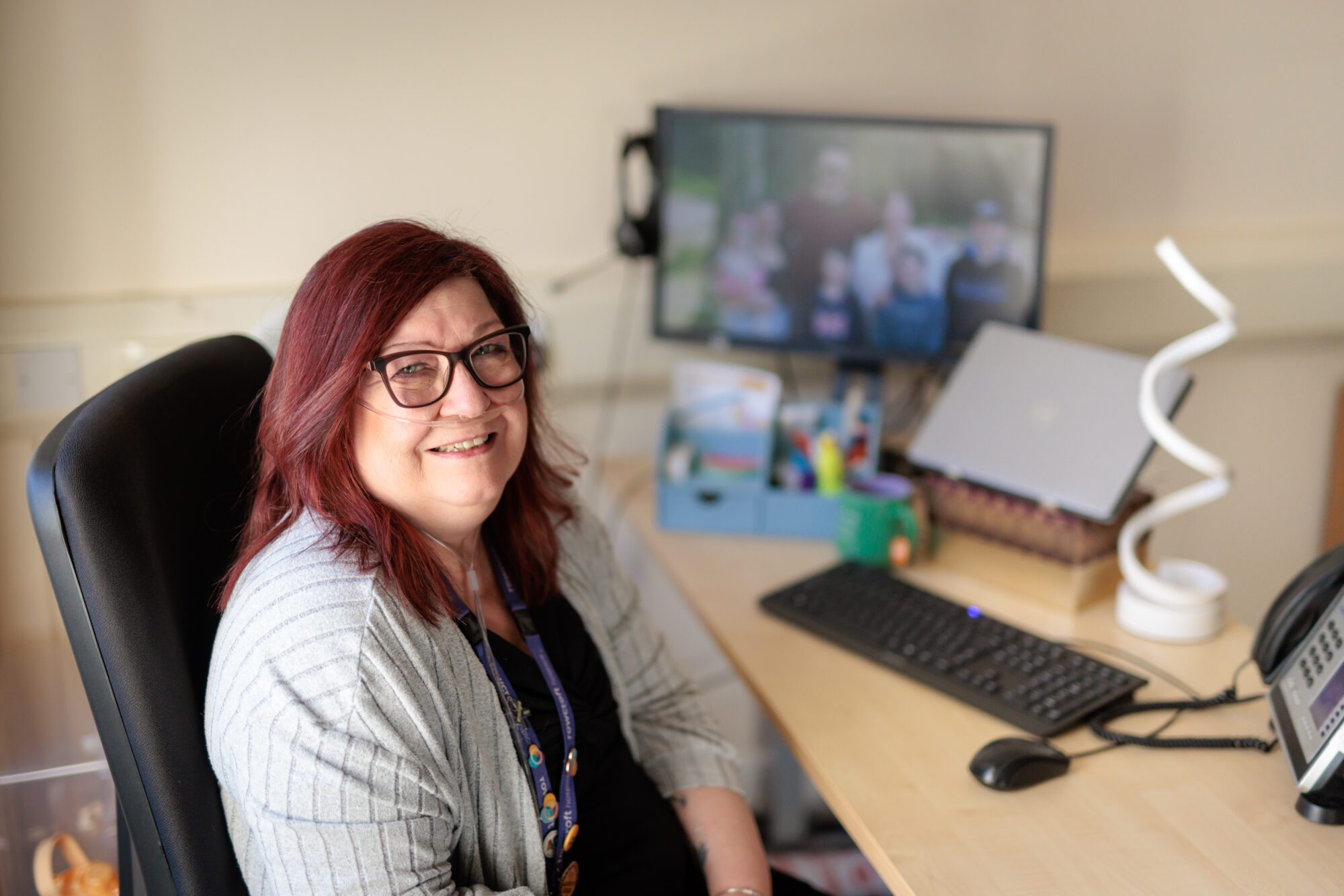Karenne Weaver explains how we’re supporting people with learning disabilities at the end of life
At Rowcroft Hospice, we’re committed to ensuring that everyone receives compassionate care at the end of life. Karenne Weaver, our Head of Community and Hospice at Home, shares how our team works alongside carers, families, and healthcare professionals to support people with complex needs, including those with learning disabilities.
Understanding each person’s unique needs
“We work closely with staff in care homes, and patients’ families, to support adults who are nearing end of life. The carers and families know and understand that person best, so we rely on their observations to inform how we can help manage any pain or distress.”
Early involvement
“The sooner we meet someone with learning disabilities the better, so that we can get to know what works for them. This is especially important for people who can’t easily communicate their needs.”
Learning from families
“Families play a huge role too – they know their loved one inside and out, and they are more likely to know their preferences. They notice things about their loved one that others might not spot, for example, they can tell us if a little noise or movement means that something’s wrong, even when the person looks peaceful to us.
“While we recognise that every patient is different and has individual needs and preferences, we learn from each patient and family who we care for about the best way to care for people with learning disabilities.”
Building relationships with carers
“We aim to build relationships with care teams and help them feel supported. Carers may be new to caring for patients at the end of life, so knowing they can call us for advice can be really reassuring.
“We’re here to help, not to replace the care teams. For carers, especially those new to the job, looking after someone at the end of life can feel overwhelming. But knowing we’re there to offer advice, kindness, and practical support can make all the difference in helping them to carry out their roles.”
The importance of training in end-of-life care
“Carers can also attend our training courses, to gain the vital skills, knowledge and confidence necessary to support a resident at the end of life.
“Simple things are important, for example, knowing to regularly and gently turn someone in bed to prevent pain and discomfort, even if they look settled. Good mouth care is also important when someone isn’t eating or drinking, as it helps keep the mouth fresh, clean and comfortable.”
Compassionate and dignified care for all
At Rowcroft, we’re committed to ensuring that people with learning disabilities receive the same compassionate and dignified end-of-life care as anyone else. By working together with families, carers, and care homes, we can help make this happen.

